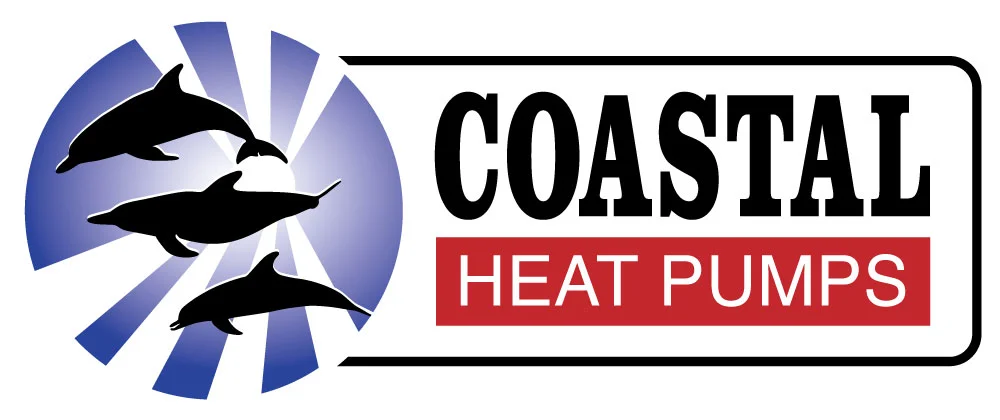Blog
Coastal Heat Pumps > Blog > Heat Pumps > Top Tips for Maximizing Your Heat Pump and Reducing Your Heating Bill This Winter
- by Tracy
- Heat Pumps, Heating Tips, News, News2
Top Tips for Maximizing Your Heat Pump and Reducing Your Heating Bill This Winter
With winter here you’ll be relying on your home’s heating system to keep you and your family comfortable over the next few months of cold weather. However, this comfort can come with sky-high energy bills if you don’t take the right precautions. The good news is that if your home has a heat pump, you already stand to save substantially on heating costs, as the Natural Resources of Canada states that modern heat pumps can reduce electricity use by up to 50% compared to oil furnaces and baseboard heaters.
While heat pumps are one of the most energy-efficient ways to warm a home, there are still steps you need to take to ensure you maximize the efficiency of your heat pump. The fact is that these systems work differently than other heating methods you may be used to, and knowing how to maximize the efficiency of your heat pump is key to reducing energy costs and improving your heat pump’s performance.
To help you get the most out of your heat pump this winter, here are our top 8 tips for maximizing your heat pump and reducing your heating bill.
Keep the Thermostat Set at One Consistent Temperature
If you’ve just moved into a home with a heat pump or had one installed for the first time, then you may be used to traditional furnaces and the best practices for maintaining energy efficiency with these systems. One common practice is to turn down the temperature at night or turn the system off when you’re at work to save money; however, this strategy is not ideal if you have a heat pump.
Heat pumps are designed to provide even, consistent heat at a slower rate than a traditional furnace. Instead of constantly turning your system up and down or on and off, you will get the best energy efficiency if you keep the thermostat at an efficient temperature (around 20 degrees) all day. Letting your heat pump run consistently to maintain a comfortable temperature in your home will save you money compared to constantly adjusting the temperature throughout the day.
Perform Regular Maintenance
Just like with any HVAC system, regular maintenance is essential to keeping your heat pump operating at maximum efficiency. If you want to ensure your comfort year-round while keeping your energy bills down, you should have your heat pump professionally serviced once a year.Your technician will clean the unit, inspect it for damage, and perform small repairs if they detect any problems. This ensures efficient performance and helps prevent unexpected breakdowns.
Regularly Change Your Filters
In between maintenance appointments, it is vital that you still perform basic maintenance. Most notably, you must change your air filters regularly. If you have seen a sudden increase in the cost of heating your home, you may be surprised to learn that a dirty air filter may be to blame. When your air filter is not changed regularly (as a rule, air filters should be changed once a month), this restricts airflow to your heat pump, causing your system to work harder to heat your home. Not only can this result in more energy consumption, but it also puts more stress on your system, leading to more frequent repairs.
Improve Your Home’s Insulation
Even if your heat pump is running efficiently, it will have to work harder to maintain a comfortable temperature in your home if you have poor insulation. Taking steps to improve your home’s insulation is one of the best things that you can do this winter to keep your energy bills down. This can include performing minor fixes such as replacing the weather stripping or caulking around your doors and windows to prevent leaks or more expensive upgrades like adding insulation to your attic, walls, and basement.
You should also take a moment to think about the age of your windows. The Department of Energy estimates that heat loss is responsible for an average of 30% of residential heating energy use; however, if your windows are outdated, this number could be significantly higher. If your home has old windows, having them replaced with energy-efficient models could significantly reduce the cost of heating or cooling your home.
Leverage Natural Heat
A great way to keep your heating costs down in the winter is to leverage natural heat by letting sunlight into your home. Open the curtains and blinds on your south-facing windows during the day to let in free heat from the sun and close them again at night to keep cold winter air out. You’ll be surprised by the extent to which sunlight can naturally heat your home.
Use Ceiling Fans to Your Advantage
If you have ceiling fans in your home, you may be surprised to learn that they aren’t just for summer. Running your ceiling fan in the reverse direction (clockwise) at a low speed during winter can push warm air down from the ceiling, which can help improve heat distribution in your home. As a result, your heat pump won’t have to work as hard to keep your home comfortable, reducing your heating bill.
Avoid Using Emergency Heating Mode
Most heat pumps come with an emergency heating setting that can bypass the standard heat pump and draw heat from backup sources like a gas furnace. The purpose of the emergency heating mode is to provide substitute heating during extreme circumstances such as prolonged subzero temperatures. While emergency heat mode is meant for emergencies, some homeowners will use this setting regularly to heat their homes quickly. However, this mode is extremely inefficient and can cause energy bills to skyrocket if used frequently. Therefore, you should try to only use this setting during actual emergencies, and make sure to contact an HVAC technician to schedule a system inspection if you can’t get comfortable without the emergency mode running.
Ensure That Your Heat Pump is Properly Sized for Your Home
If you’ve been experiencing unusually high heating costs, you should take a moment to make sure that your heat pump is the correct size for your home. If your heat pump is too small for the area it is trying to heat, it will have to work harder to maintain a consistent temperature in your home, which could lead to high energy bills, frequent repairs, and a shorter system lifespan. This is why it is so important that you work with an experienced HVAC technician when purchasing a new heat pump, as they will ensure that the right heat pump is installed given the size of your home.
Following these tips can help you maximize the efficiency of your heat pump, helping to keep your heating bills down this winter. Feel free to contact us to learn more helpful tips, as well as to schedule an appointment to have your heat pump serviced, repaired, or replaced.
